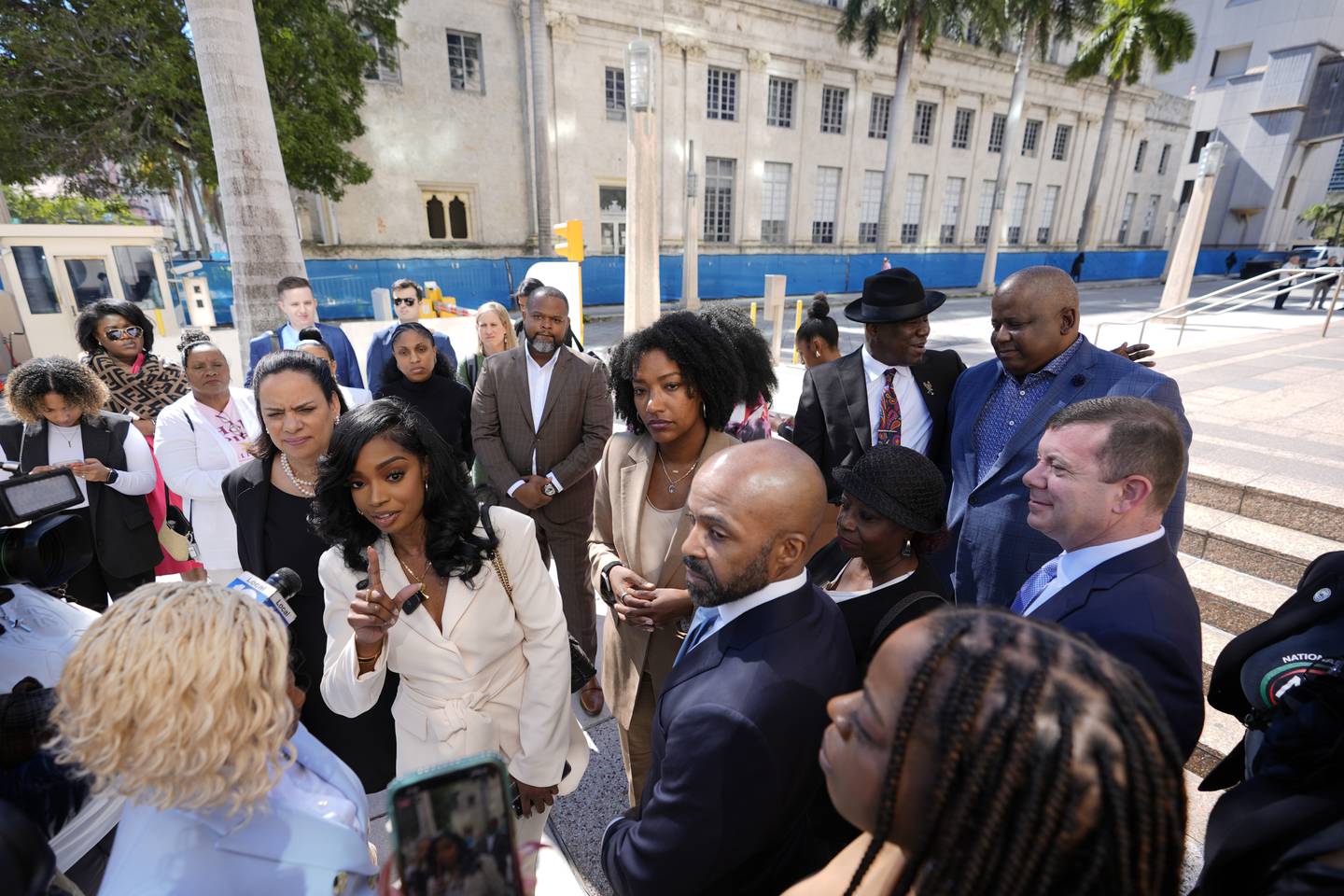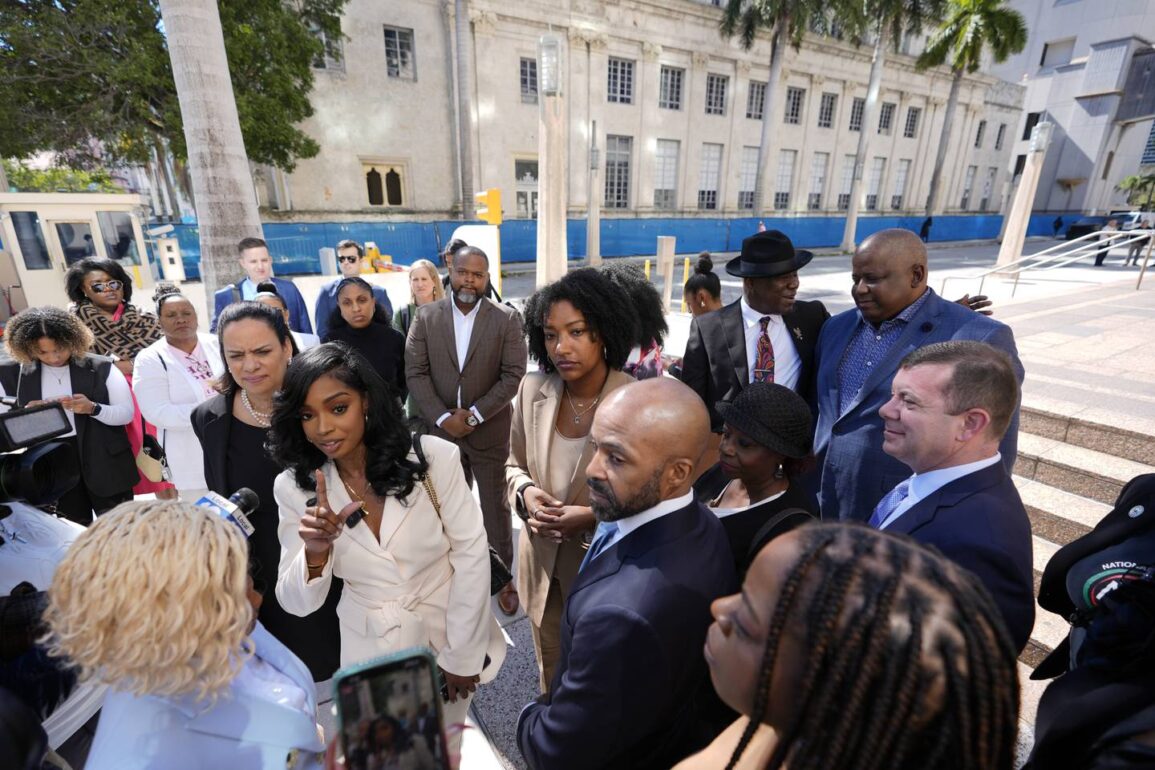
A ruling out of a federal appeals court in Atlanta a few weeks ago is proof that systematic racism and forced inequity is not only alive in this country but thriving since the Supreme Court knocked down affirmative action in university admissions last year.
In Atlanta, the 11th Circuit Court of Appeals ruled that a privately financed program called The Fearless Fund that awarded seed money for small businesses run by women of color was discriminatory.
Two entrepreneurial Black women started the fund to encourage and help women of color program succeed in business. It has awarded about 350 grants of $20,000, not an enormous amount of money but enough to make some small business dreams a reality. With that comes financial independence, job creation, tax contributions and other things that benefit the economy. The fund also offers training programs and mentorship to women with successful start-ups to help them grow their businesses.
The irony is that Fearless Fund inspires fear in a group that used twisted logic and Orwellian language, a group that sued to stop these women of color from helping one another.
The American Alliance for Equal Rights hired an anti-affirmative lawyer to file suit. Who are these people? We don’t know. They fearfully chose to remain anonymous.
This group argued that the Fearless Fund violated a Reconstruction-era civil rights law, prohibiting racial discrimination in contracts of all kinds and designed to protect formerly enslaved Black people from being denied opportunities. The 11th U.S. Circuit Court of Appeals turned this on its head to deny these women of color business opportunities.
This is outrageous on so many levels and a step backward in efforts to close the wealth gap between Black and white Americans.
It is also a case of why we need a system of legally protected reparations now, to stop this backslide of inequity, and rectify the sins of this country’s past, and help Black Americans inch toward equity and justice.
The idea of reparations doesn’t have to be such a divisive issue. I believe reparations can be a cleansing moment that could help ease racial tensions in this country rather than fuel them.
This is a chance to have a restorative moment, an opportunity to arrive at the spot on the moral arc of the universe that bends toward justice. As Dr. Martin Luther King pointed out, that will give us a chance, all of us, to make this a more perfect union, a democracy that outlives its past and builds a promising future that is more inclusive, more creative, and more sustainable than its founding.
We have an opportunity to add millions of people to our economy that have been left out, to spend less on programs meant to mitigate the results of long-standing and deliberate policies that undermine opportunity and progress.
It is a reckoning whose time has come.
What scares people about reparations is that they believe they will be paying huge cash gifts to people who don’t deserve it or who haven’t earned it. On its face, this is not true. We most certainly have earned it as much as we still are climbing out from beneath the rubble daily of slavery, the Black Codes, Jim Crow, redlining, and a myriad of other types of discrimination.
The reality of reparations is far different. It means investment in affordable housing and mortgage help to let Black people build generational wealth through homeownership, significant investment in urban pre-K through 12 education, and college funding.
Overlooked in any discussion about financial reparations is that there is no downside for other Americans or for the country. More equity means more money coming into local and state economies through spending and taxes. More equity in education spending means less money going to remediation of social ills. It costs more to house an inmate per year than send a kid to college.
There are some cash grants attached to most reparations discussions, like guaranteed income programs or baby bonds, in which the government makes an investment in a child’s future by depositing money in a savings account. These are designed to help Black families narrow the wealth gap with white households, which on average enjoy eight times the net worth of their African American counterparts.
Last year, in Newark we concluded a guaranteed income program that awarded $6,000 a year to participating families. While that might not seem like life-changing money, it was. It gave these families the dignified financial security to pay rent and utility bills, to buy food, school supplies, and uniforms for their children.
Direct cash payments to people through guaranteed income programs would save untold tax dollars because, like in medicine, emergencies and emergency assistance cost far more than keeping people from falling into desperation in the first place.Narrowing the wealth gap doesn’t pull white people down. It pulls Black people up which is better for the overall economy of the country.
The other part of reparations that has no downside is a serious discussion of how to combat the emotional scars of slavery handed down through the generations. Researchers have found that trauma and violence can alter our genetic makeup and these traits can be handed down for generations. Four centuries of experiencing the dehumanizing horrors of enslavement cannot be erased with wishful thinking.
In Newark, we continue to enjoy double-digit reductions in crime through the efforts of our Office of Violence Prevention programs that deal with generational trauma to end family cycles of violence.
In this regard, reparations simply mean “repair.” It is a national admission that harm was done, that harm is still with us today, and that harm needs to be repaired.
For people in New Jersey who think society should be held less accountable for slavery as a northern state, our history suggests otherwise.
New Jersey was known as “The Slave State of the North.” Dutch settlers brought Africans here in the early 1600s to be enslaved. Jersey City, Hoboken, Perth Amboy and docks on the South Jersey side became busy slave-trading ports.
In 1664, the state’s white settlers were given 150 farming acres for every adult slave they owned. The state passed a “Gradual Abolishment of Slavery Act” of 1804, which kept adults and children enslaved under the guise of “apprenticeships” beyond the Civil War and the Emancipation Proclamation. New Jersey refused to ratify the 13th Amendment and slavery was finally outlawed in Jan. 23, 1866, six months after the Juneteenth liberation of Texas slaves.
After World War II, Black veterans were denied favorable mortgages given to white veterans to afford homes in developing suburbs. This led to the segregation in our towns and schools that we still see today.
This is New Jersey’s history. We should first own it, then rectify it. If people of all colors look at reparations with an open heart, there can be forgiveness on one side and meaningful, compassionate concessions on the other to help us all move forward.
Ras Baraka is the mayor of Newark and a candidate for governor.
Here’s how to submit an op-ed or Letter to the Editor to Mosaic. Follow us on Instagram at @MosaicNJcom and on Facebook at MosaicNJcom.



